Natural Sciences
NutriFish Project Registers Significant Achievements
Published
3 years agoon
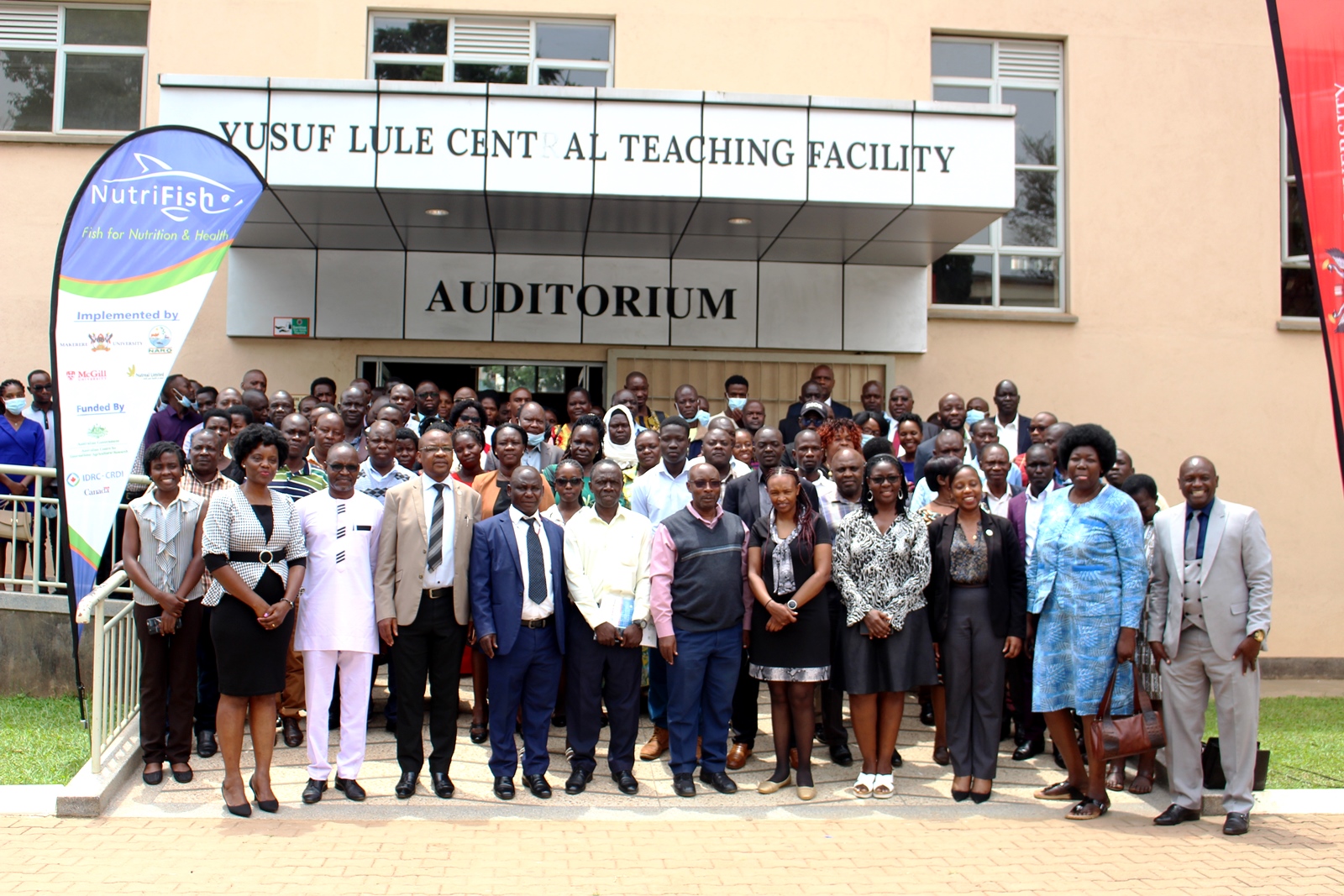
The project has made great strides in reducing malnutrition amongst vulnerable communities in Uganda by improving the acceptability and consumption of small pelagic fishes (SPFs). SPFs are rich in bioavailable micronutrients including iron, zinc, calcium, vitamin A and essential fatty acids (Omega 3, 6).
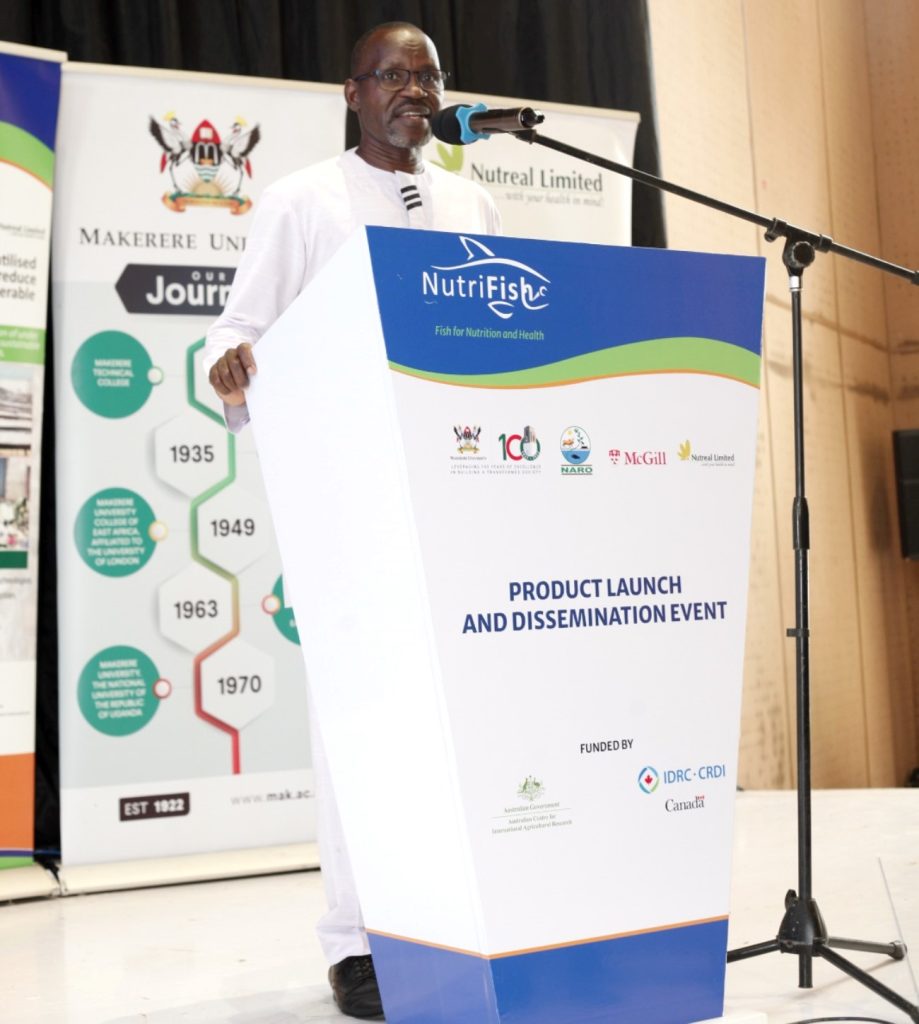
Overview
Malnutrition remains a serious challenge to human health and economic development in Uganda. Due to limited access to micronutrient-rich foods and animal protein, especially fish, 32% of women between 15-49 years are anemic whereas 30% are zinc deficient. 53% of children below five years of age are anemic and 70 % zinc deficient.
The nutritive value of the Small Pelagic Fishes (SPFs) cannot be underlooked in efforts to address the challenge. The SPFs are rich in bioavailable micronutrients including iron, zinc, calcium, vitamin A and essential fatty acids (Omega 3, 6). Besides, they are consumed whole, which enhances their nutritional benefits compared to the large fishes. Most consumers, including vulnerable groups in rural and peri-urban communities can purchase SPFs in small quantities at relatively affordable prices. The SPFs are therefore crucial in improving human nutrition, particularly during the first 1000 days of life (from conception to the second birth day) as they contribute to maternal health and better child development. SPFs are however not being consumed in sufficient quantities due to high levels of adulteration with grit, soil and sand; off-flavors (smelly fish); bitter taste and lack knowledge of the different methods of preparation. Traditionally, the SPFs are regarded as fish for the poor and livestock. Currently per capita fish consumption in Uganda is between 10-12 Kilograms per person per year which is below the internationally recommended amount of 26 kilograms per person per year according to the Food and Agriculture Organization (FAO).
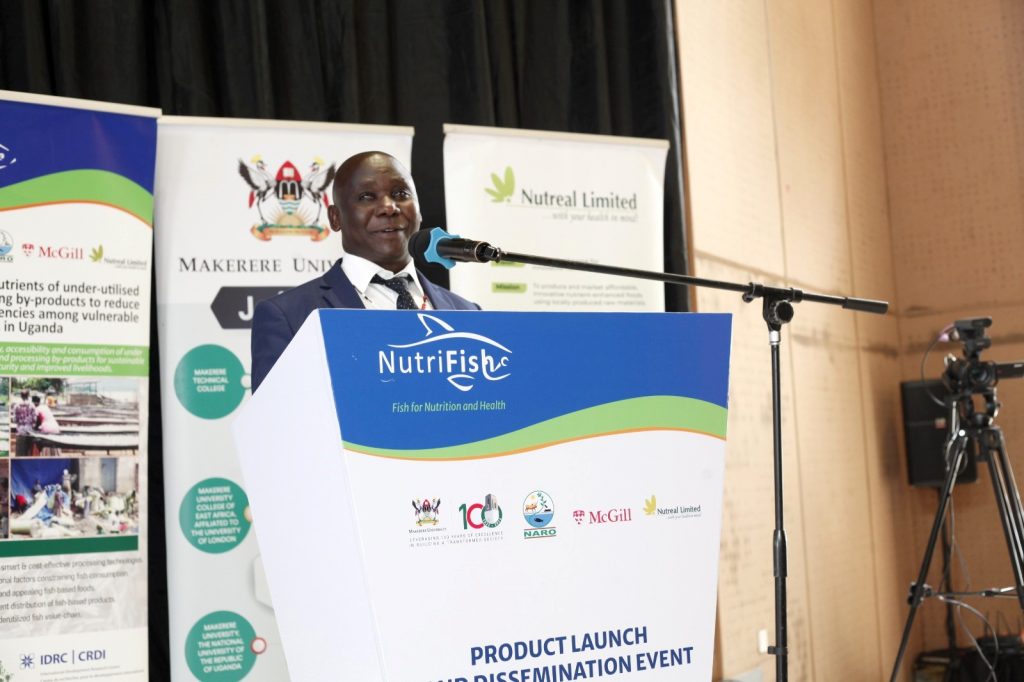
The NutriFish Project and achievements registered
Through a project titled NutriFish, researchers from Makerere University together with their partners from the National Fisheries Resources Research Institute (NaFIRRI) – National Agricultural Research Organization (NARO), NUTREAL Limited and McGill University, Canada in 2019 set out to increase the availability, accessibility and consumption of SPFs for sustainable food and nutrition security and better livelihoods of vulnerable groups in Uganda. Led by Dr Jackson Efitre from the Department of Zoology, Entomology and Fisheries Sciences, Makerere University, and supported by the International Research Development Centre (IDRC) and the Australian Centre for International Agricultural Research (ACIAR) through their joint programme, Cultivate Africa’s Future Fund (CultiAF), the researchers developed five high-value nutritious products (baby food, sauce, maize meal, snacks, and seasoning) using Mukene. A 50g portion of the baby food flour provides more than one-third of a child’s daily protein, iron, zinc, and folic acid requirements. The researchers also developed a Mukene recipe book, containing 16 recipes rich in protein, calcium, zinc, and iron. The cookbook was endorsed by the Minister of State for Fisheries, Hon. Hellen Adoa. Through the NutriFish Project, fishers have been helped to access loans to purchase boats and fish containers which improve hygiene and quality by improving drainage and reducing compaction of fish. Two enterprise fishing groups with over 70 boats have been established and are working together – an approach which ensures more consistent supply and standards, and results in over 3.7 tons of fish caught each month. The research team also developed an application (eCAS system) for tracking fish catches. By September 2022, 8,960 records of catch data had been collected and transmitted through the eCAS system by trained local enumerators. Over 200 stakeholders are using the application, including the Directorate of Fisheries Resources and the Fisheries Protection Unit, which uses the data to help prevent overfishing.
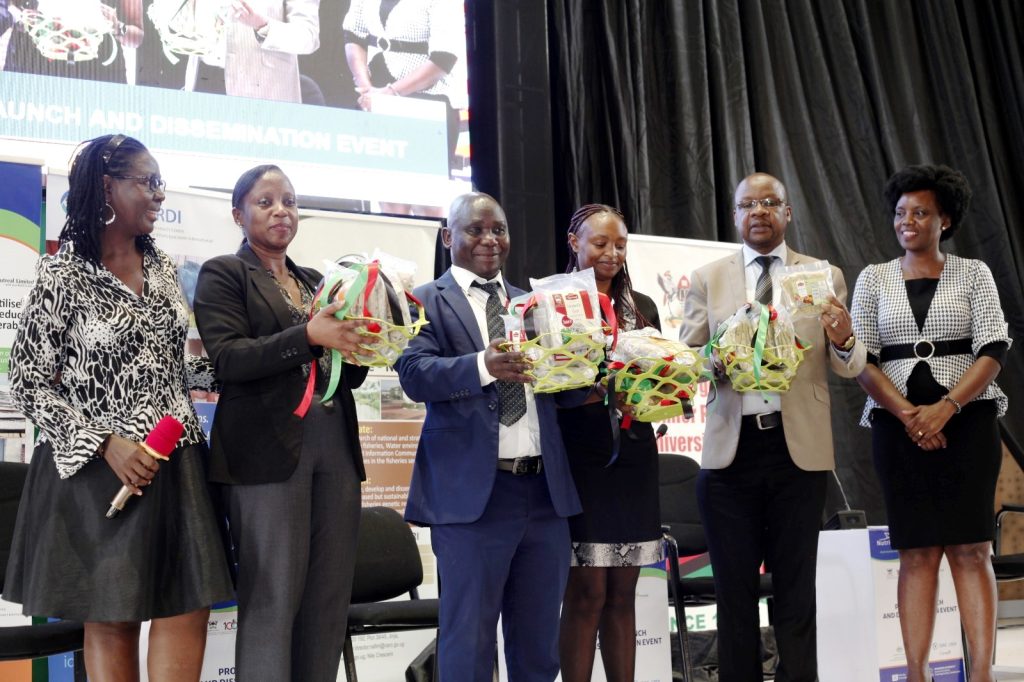
Other achievements registered under the project include the development of solar tent driers – greenhouse-like structures that reduce the risk of contamination – provide clean and efficient storage and drying, especially during the wet season subsequently reducing post-harvest losses. The increased fish quality has doubled fishers’ incomes, from US$1 to US$2/kg, and tripled the shelf-life of dried small fish to almost five months. The driers have also attracted the attention of policymakers, with the Sectoral Committee of Parliament on Agriculture, Animal Industry, and Fisheries specifically recommending their use in April 2022 for improving fish processing. To encourage consumption of Mukene products, NutriFish developed a radio-based awareness campaign. More than 12 million listeners were reached by 29 different ‘spot’ messages in local languages and four 15-minute in-studio conversations – a significant step in tackling long-standing social beliefs that Mukene is food only eaten by poor families or animals. The project conducted awareness training with 326 people (200 women) to reduce gender inequalities. As a result, domestic violence dropped by 30%, the number of women in the fish value chain increased, more couples began to make joint household decisions, and more men carried out household tasks, increasing from 15% to 20%. The project also trained eight Graduate students, who have gained valuable skills and knowledge thus boosting critical human resource needs in the fisheries sector.
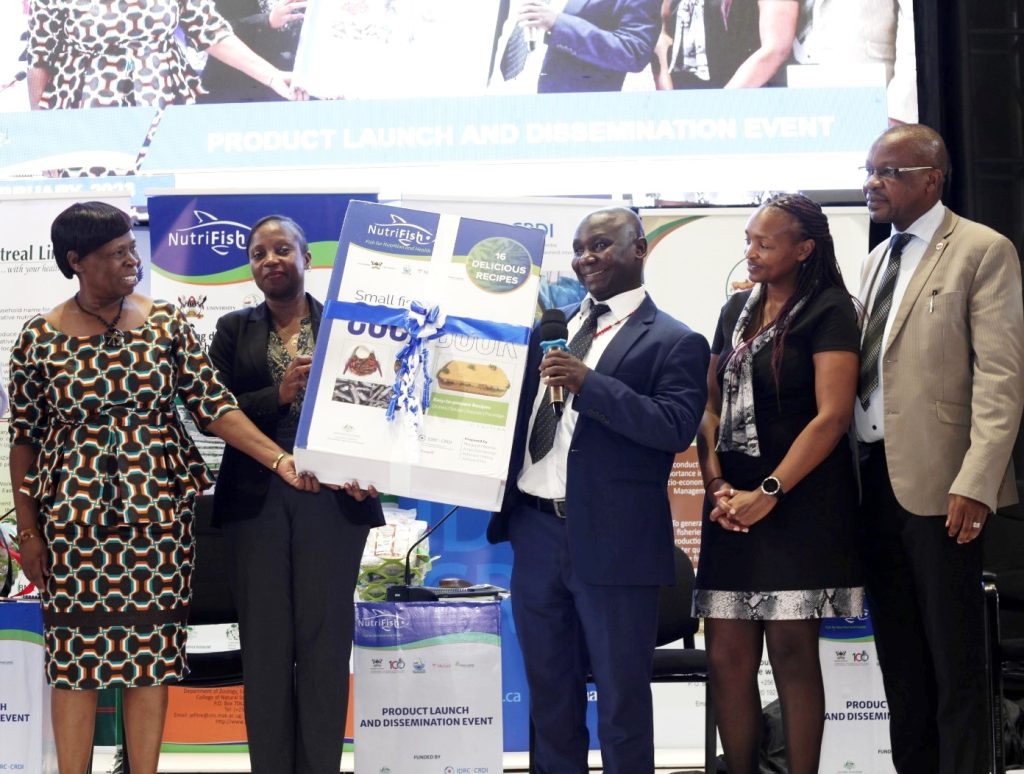
NutriFish Product Launch and Dissemination Event
On 27th February 2023, the College of Natural Sciences (CoNAS), Makerere University in collaboration with the National Fisheries Resources Research Institute (NaFIRRI) and partners – International Development Research Centre (IDRC) held the NutriFish project product launch and dissemination event. The event was presided over by the Minister of State for Fisheries, Hon. Hellen Adoa represented by the Ag. Director, Directorate of Fisheries Resources, Ministry of Agriculture, Animal Industry and Fisheries (MAAIF), Mr. Tom Mukasa Bukenya. It was graced by Ms. Mercy Rurii, Programme Officer at the IDRC of Canada and a number of dignitaries from the agricultural and fisheries sector including the Director General of NARO represented by Ms. Winnie Nkalubo from NaFIRRI.
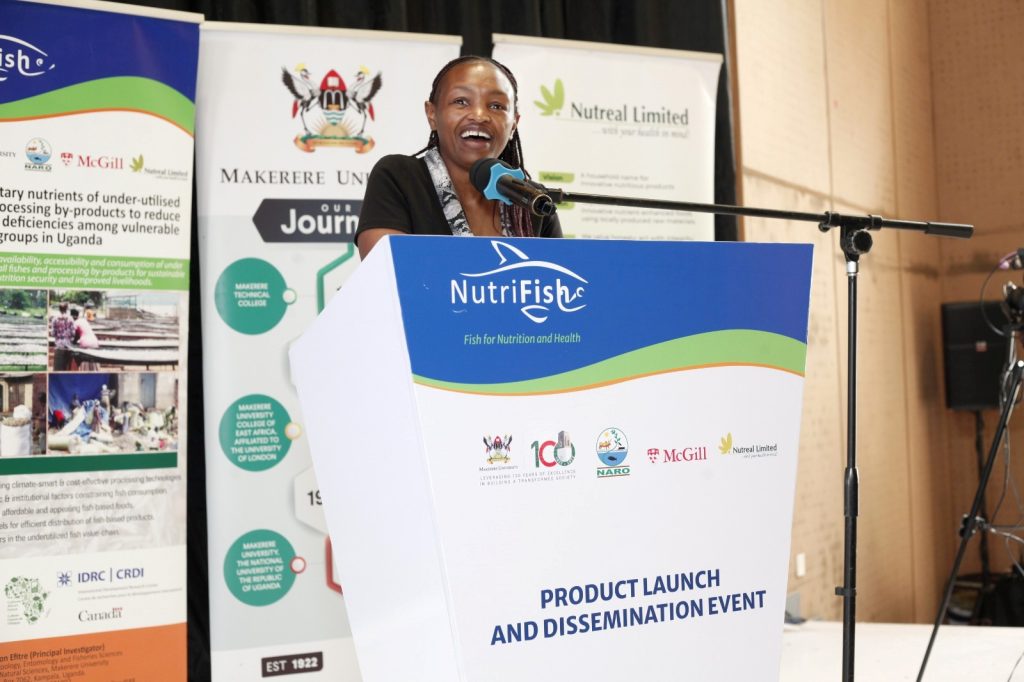
Remarks by the PI
Presenting an overview of the project and achievements registered, the NutriFish Principal Investigator, Dr Jackson Efitre emphasized the importance of SPFs in addressing nutritional deficiencies and improving livelihoods of vulnerable communities.
He appealed for the inclusion of small fishes and fish products into the national nutrition/health interventions including school feeding programs and supplemental feeding in malnutrition units at health facilities. He expressed gratitude to the funders of the project noting that it had greatly transformed livelihoods of vulnerable communities in the country. “Sincere appreciation to our implementing partners NaFIRRI, McGill University and Nutreal Ltd., who worked closely with us to effectively implement the NutriFish project. We also thank the different Government Ministries, Departments, Agencies, the donors, the private sector, and community members – who supported us throughout the project implementation.”
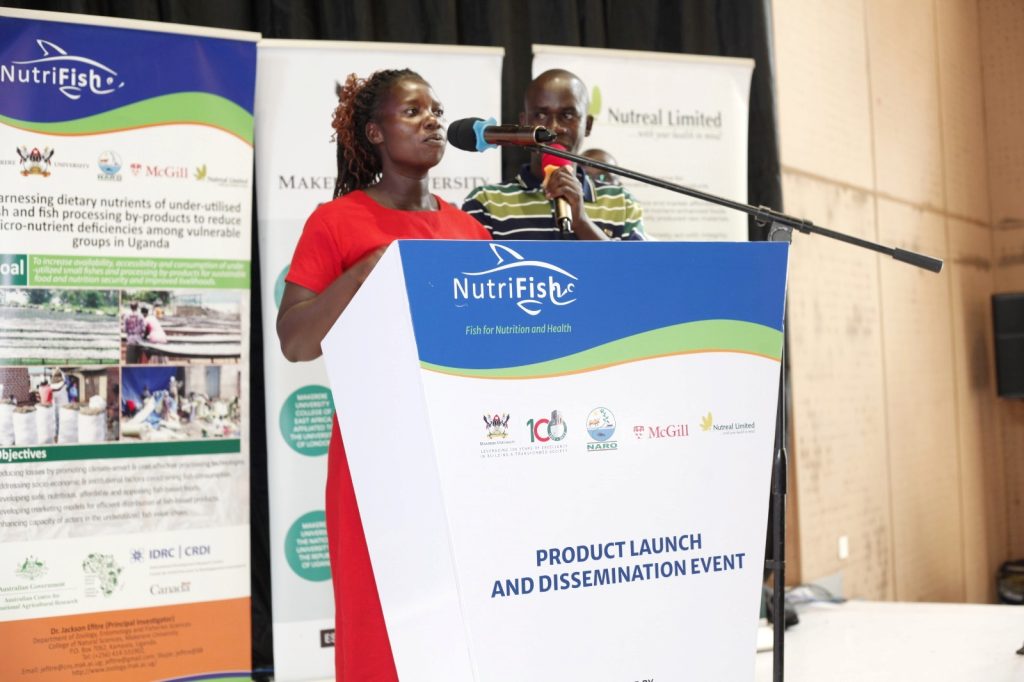
Testimonies by the beneficiaries
Sharing experiences, the beneficiaries appreciated the project team and funders noting that the interventions had improved the quality of their operations subsequently increasing their profits and transforming their livelihoods. “I was born at the lake and I have grown up there but I had never eaten Mukene for several reasons, but mainly due to poor preservation methods. Following the interventions by the NutriFish Project, my attitude towards Mukene changed and I now own a Mukene business which has greatly transformed my life. With the skills acquired from the trainings conducted by NutriFish, we are now able to produce and sell quality Mukene and our profits have increased. Out of the 14 members in my group, 5 of us bought boats and this has increased our income from UGX500,000 to UGX3,000,000 per month per individual,” Mercy Betty, Mukene trader at Ntoroko Fish Landing Site. According to Patrick Chakcon, a fish trader from Dei Landing Site in Pakwach, the solar tent drier has helped improve the quality of their products. “Initially, we relied mainly on open drying which is time wasting and not secure. With the introduction of the solar tent drier, many fish dealers now have time for other activities. We thank the project team and the funders for this intervention. We however appeal for more units because what we have at the moment can only dry 500kgs out of the 5000kgs harvested per day.”
Before the project, Ms. Tereza from Kikondo in Buikwe district was experiencing a lot of challenges and at some point got thoughts of suicide. She is so grateful for the intervention because she now works and can support her family.
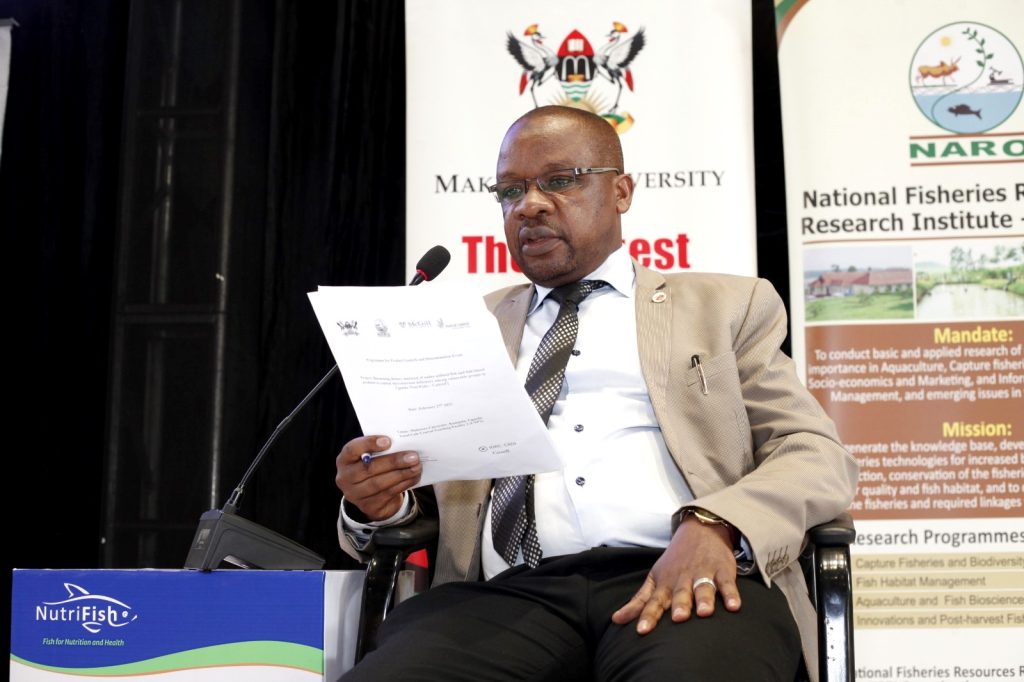
Remarks by the Minister of State for Fisheries
In her address presented by the Ag. Director, Directorate of Fisheries Resources, Ministry of Agriculture, Animal Industry and Fisheries, Mr. Tom Mukasa Bukenya, the Minister of State for Fisheries, Hon. Hellen Adoa commended the project team for the initiative. She also appreciated the funders for supporting the project. Highlighting the value of fish in terms of exports which now stands at approximately USD177 million, the Minister said Government had prioritized fish in the agricultural sector strategic plan as a flagship commodity for investment and development in line with National Development Plan (NDPIII). “Through the Agricultural Sector Strategic Plan, promoting Small Pelagic Fishes is one of the priorities of the Ministry of Agriculture, Animal Industry and Fisheries to address issues of hunger, malnutrition and food security and improve livelihoods of the fishing communities. I’m happy that the project has come up with tangible solutions to deal with some of these challenges including unsustainable harvest and post-harvest losses.” The Ministry implored the project team share the findings widely through various regional bodies.
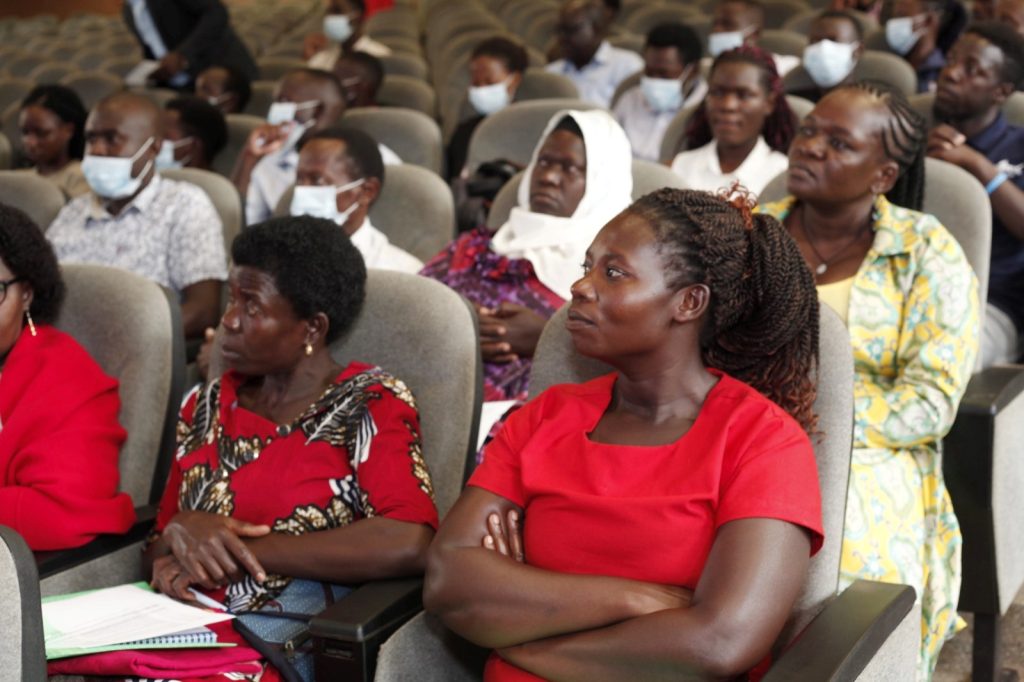
Remarks by the Vice Chancellor
In his speech delivered by the Deputy Principal of CoNAS, Prof. Juma Kasozi, the Vice Chancellor of Makerere University, Prof. Barnabas Nawangwe congratulated the NutriFish Project team upon achieving the set objectives. “On the 27th June 2019, I had the honour of officiating at the launch of the innovative Harnessing dietary nutrients of under-utilized fish and fish processing by-products to reduce micronutrient deficiencies among vulnerable groups in Uganda – NutriFish Project. Today, I am happy to witness the launch of the project innovations and products. NutriFish brought together pillars of knowledge (research and academia) and the Private sector and addressed issues of maternal and child health, nutrition, and poverty reduction through a Public-Private-Partnership approach.” The Vice Chancellor noted that the project activities were in line with Makerere’s current Strategic Plan (2020 -2030) which aims at transforming the University into a research-led institution with a multi-faceted research agenda; and enhanced engagement with industry and the business sector. “As University management, we are happy that we provided conducive working conditions and facilities that enabled NutriFish and her partners to successfully implement project activities. On behalf of Makerere University Management, I extend our appreciation to the funders of the project and the implementing partners.”
Remarks by the IDRC representative
In her remarks, Ms. Mercy Rurii, Programme Officer at the International Development Research Centre of Canada commended NutriFish project as timely intervention that would largely address the challenge of malnutrition in the region. “Malnutrition has negative impact on the cognitive development of children and poses unnecessary burden on the healthcare system. Money that would be spent on other productive sectors goes into healthcare as a result of the many diseases arising from malnutrition, and this becomes a very crippling development challenge. The project team has come up with practical solutions to address this challenge. On behalf of IDRC, we commend the project team for these interventions.”
On behalf of the Principal, CoNAS, Prof. Winston Tumps Ireeta, the Deputy Principal, Prof. Juma Kasozi expressed gratitude to the funders and project partners. He appreciated the project team for the timely initiative that emphasized community engagement in line with Makerere University Strategic Goal 4.
The event featured a panel discussion on National and regional initiatives for addressing fisheries management challenges, moderated by renowned TV talk-show host, Mr. Patrick Kamara. Panelists included Mr. Tom Bukenya, Ag. Director, Directorate of Fisheries Resources, MAAIF; Ms. Joyce Ikwaput Nyeko, Deputy Executive Secretary, Lake Edward and Albert Fisheries and Aquaculture Organization Entebbe; Ms. Nelly Badaru, Gender Expert and Independent Consultant; and Mr. Boaz Musementa from the Office of the Prime Minister. They called for development of quality assurance standards for Mukene products to penetrate the international market. They also called for inclusion of women in decision making processes, strengthening of regional cooperation to minimize trans-boundary conflicts and harmonization of the legal and policy frameworks.
The event also featured an exhibition of several products developed under the NutriFish project.
View proceedings of the event here:
You may like
-


Makerere University School of Public Health Graduates First Cohort of Cost-Effectiveness Analysis Short Course
-


Climate variability found to shape malaria trends in Yumbe District
-


Mak hosts First African Symposium on Natural Capital Accounting and Climate-Sensitive Macroeconomic Modelling
-


Uganda Martyrs Namugongo Students Turn Organic Waste into Soap in an Innovative School Project on Sustainable Waste Management
-
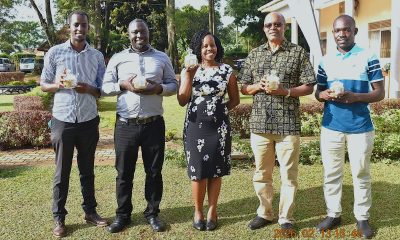

Makerere University Researchers Release New Soybean Variety, MakSoy 7N
-


Olivia Nakisita and the Quiet Urgency of Adolescent Refugee Health
Natural Sciences
BOKU University Charts New Collaboration Strategies with Mak’s Department of Zoology, Entomology & Fisheries Sciences
Published
1 week agoon
February 12, 2026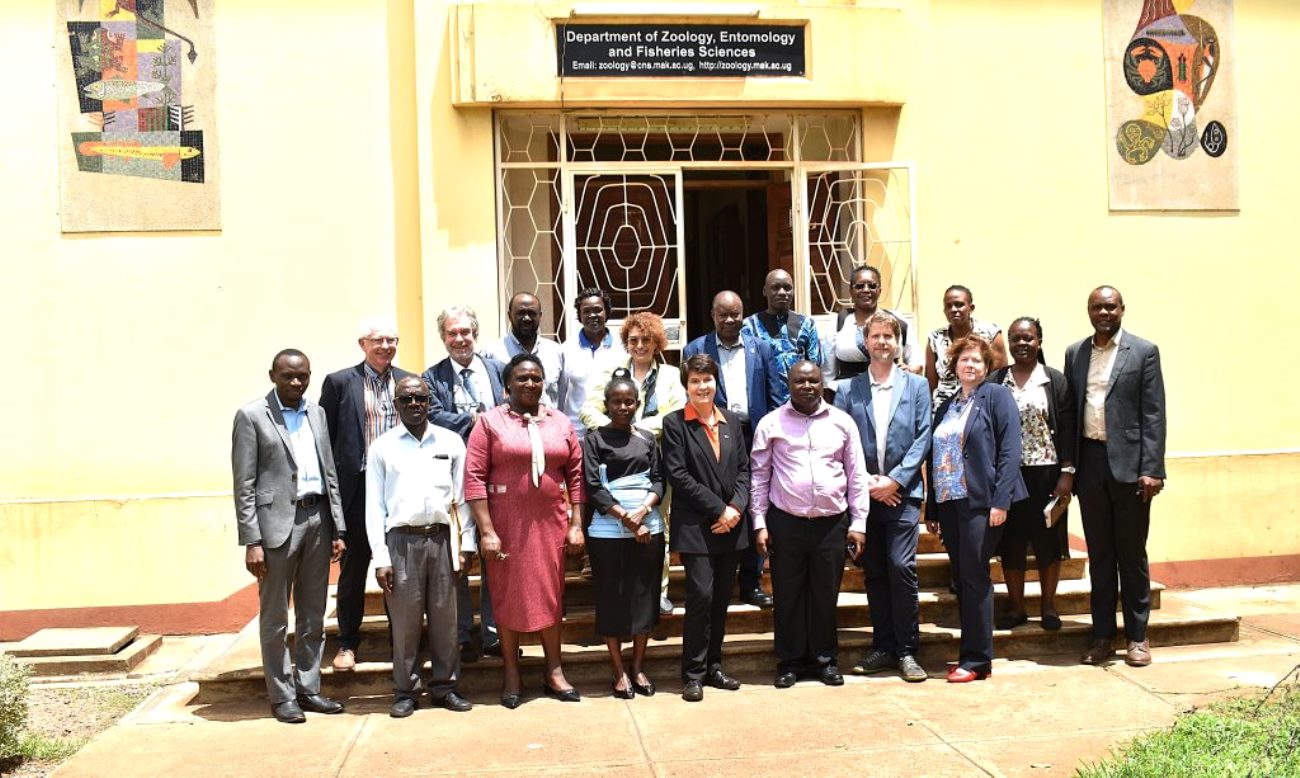
The Department of Zoology, Entomology and Fisheries Sciences at Makerere University on 11th February 2026 hosted a high-level delegation from the University of Natural Resources and Life Sciences, Vienna (BOKU), to discuss strategies for future collaboration in a partnership that has spanned five decades.
The meeting followed the BOKU team’s participation in the opening ceremony of the Promotion of Hybrid Renewable Energy Systems towards Electricity Access in Uganda project, an initiative designed to expand access to decentralized renewable energy solutions. The project, implemented under CEDAT, is funded by the Austrian Partnership Programme in Higher Education and Research for Development (APPEAR), a programme of the Austrian Development Cooperation administered by OeAD.
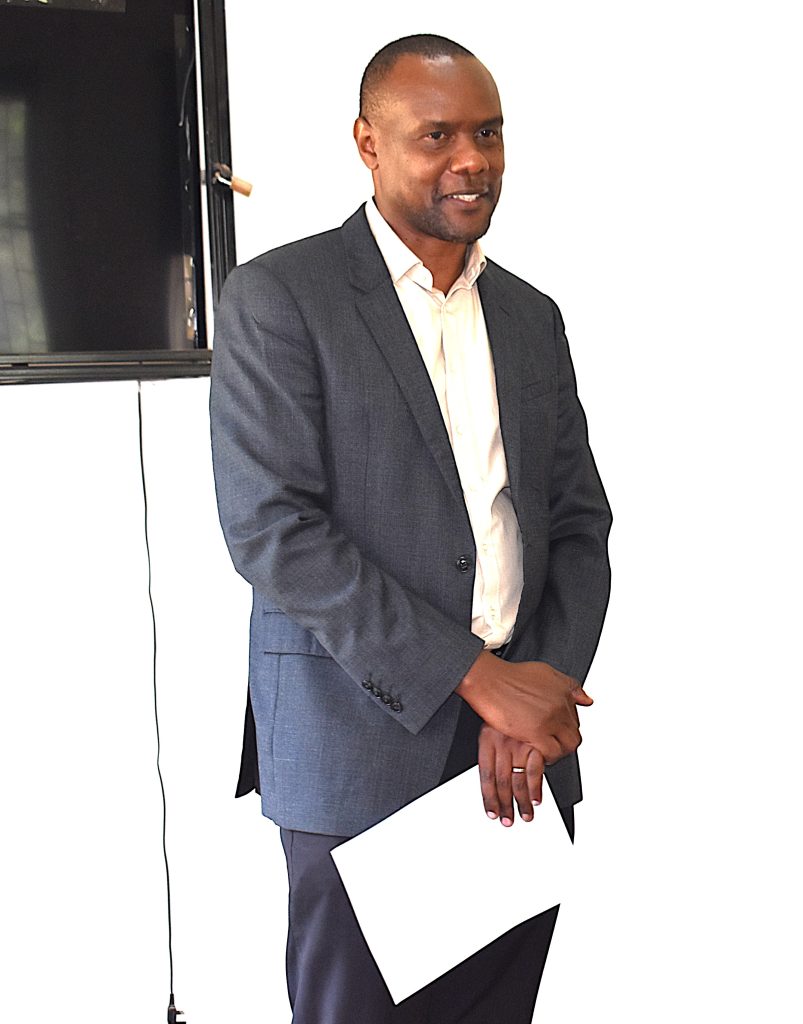
Discussions at the Department of Zoology, Entomology and Fisheries Sciences focused on deepening and broadening a historic collaboration that has shaped aquatic sciences, fisheries research, and environmental management in East Africa for half a century.
A Partnership Rooted in Limnology
The collaboration between Makerere University and BOKU traces its origins to 1975 with the establishment of the International Post-Graduate Course in Limnology (IPGL) by the late Heinz Löffler (1927-2006). The eight-month UNESCO-supported course, hosted in Lunz, Mondsee and Vienna, was designed to train scientists from developing countries in limnology – the study of inland waters.
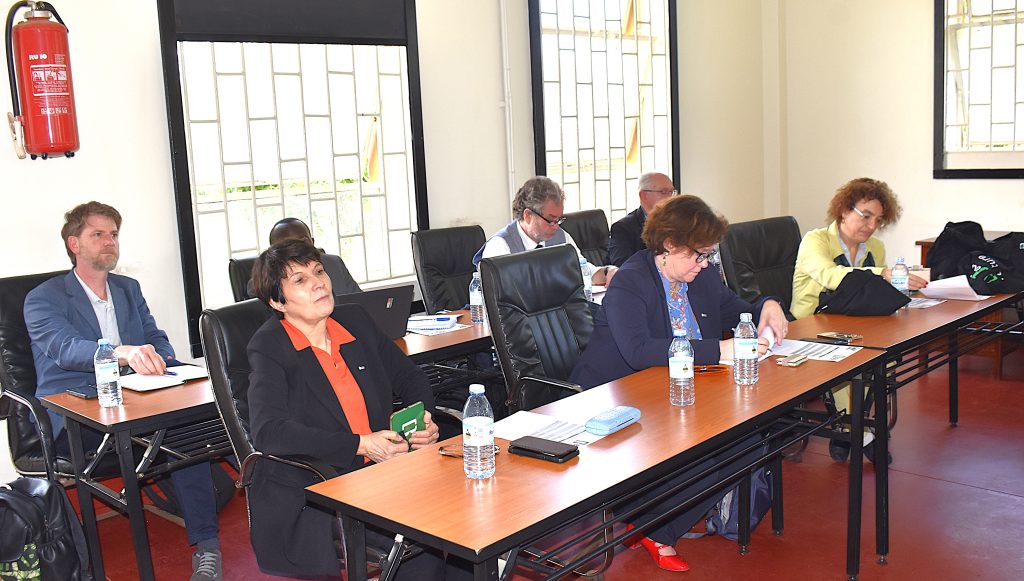
In 1976, Dr. Gwahaba James Joshua of Makerere’s Department of Zoology, Entomology and Fisheries Sciences became the first beneficiary from the university. Two years later, Boniface Makanga attended the UNESCO course and went on to initiate a Marine Practical Course to the Indian Ocean in 1993. That programme has since grown into over 30 years of annual field activity in Mombasa, benefiting undergraduate and master’s students and strengthening hands-on marine science training at Makerere.
Over time, IPGL evolved into a vibrant International Joint Degree Master’s Programme in Limnology and Wetland Management. The programme has built capacity for 123 aquatic professionals – 56 female and 67 male, including 20 from Makerere University. Notably, 11 dedicated limnologists are currently based within the Department of Zoology, Entomology and Fisheries Sciences, a testament to sustained capacity development.
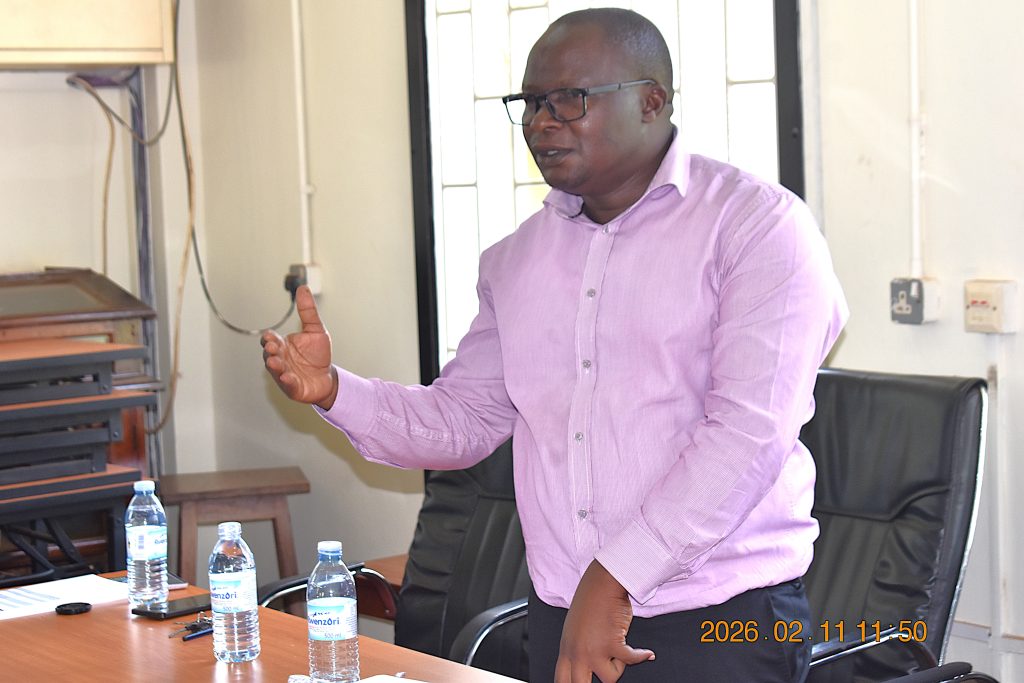
Expanding into Fisheries, Aquaculture and Regional Networks
The Mak-BOKU collaboration progressively expanded beyond limnology into fisheries, aquaculture, and broader freshwater ecosystem management.
Among the key initiatives was STRECAFISH (2015-2018), which focused on strengthening regional capacity in fisheries and aquaculture research and training to improve food security and livelihoods in Eastern Africa. The programme adopted a modular approach, trained 28 MSc students, supported five full PhDs and 11 MSc research projects, and facilitated 14 staff exchanges.
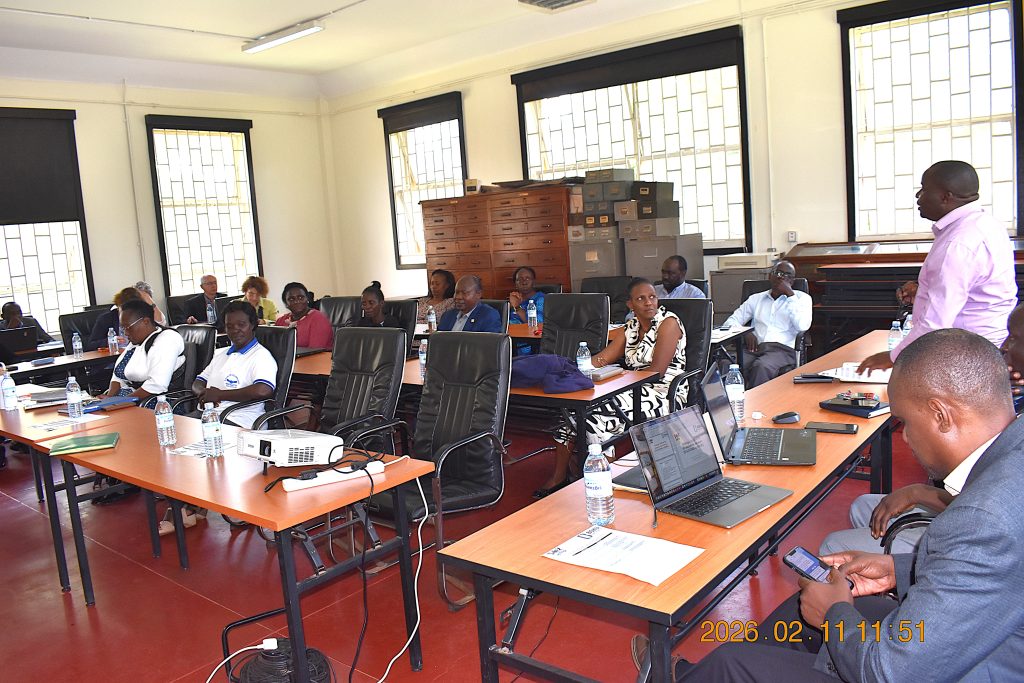
This momentum continued under COTRA (Collaborative Training in Fisheries and Aquaculture in East, Central and Southern Africa) from 2017 to 2023. COTRA enhanced staff and student mobility, supporting 24 master’s students (six credit-seeking and 18 degree-seeking), 12 doctoral candidates (four credit-seeking and eight degree-seeking), and 10 faculty and administrative staff. The initiative emphasized fit-for-purpose PhD training in aquaculture and fisheries to address food security challenges in Sub-Saharan Africa under the ACP-EU Cooperation Programme in Higher Education (EDULINK II), in partnership with institutions such as Lilongwe University of Agriculture and Natural Resources.
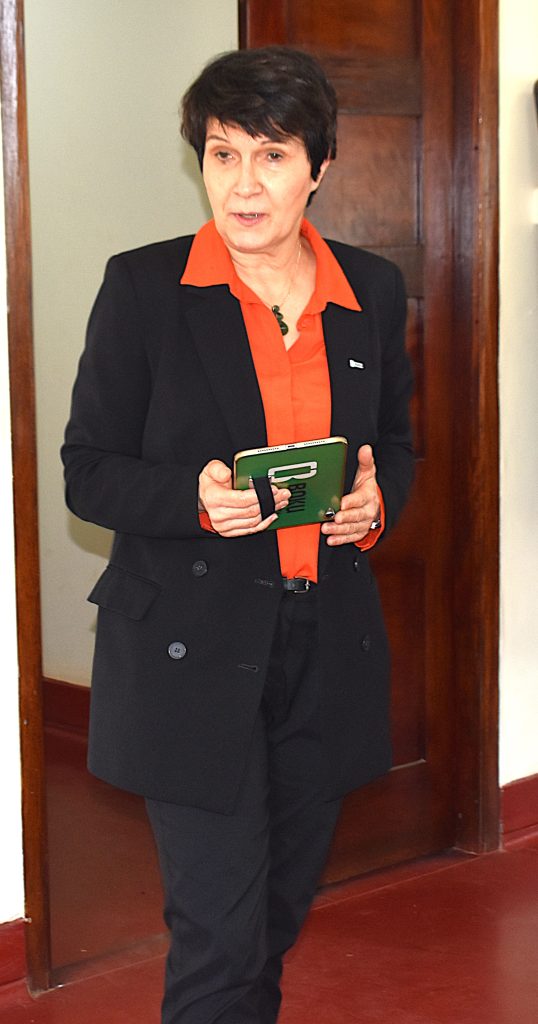
Ongoing collaborations include the Erasmus+ KA1 Learning Mobility of Individuals programme (2021-2027), which connects BOKU and Makerere with Egerton University, Kyambogo University, Addis Ababa University, Bahir Dar University and others. Additional joint initiatives include:
FreshNet: A higher education and research network for sustainable management of freshwater ecosystems in Eastern Africa, involving BOKU, Egerton University, Addis Ababa University, Bahir Dar University, EIAR and IHE Delft.
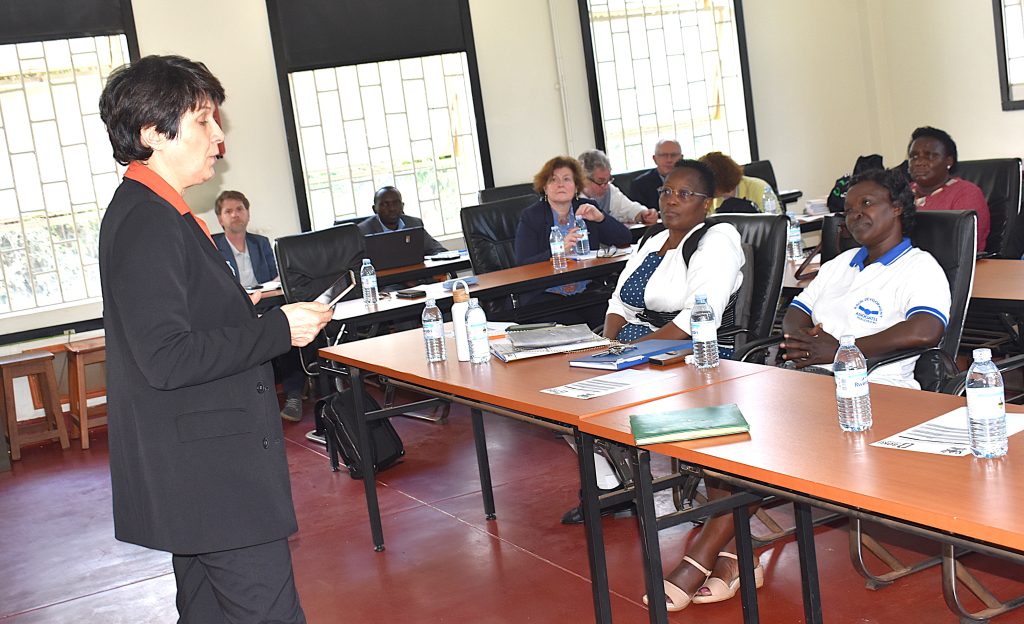
SWAQ-Uganda (2021-2026): Sustainable water quality management supporting Uganda’s development ambitions, implemented with IIASA, BOKU and Uganda’s Ministry of Water and Environment.
BIOGOLD (2024–2027): A project on biosorption for sustainable small-scale gold mining in Uganda, involving Kyambogo University, Makerere University, Gulu University, the University for Continuing Education and the University of Pretoria.
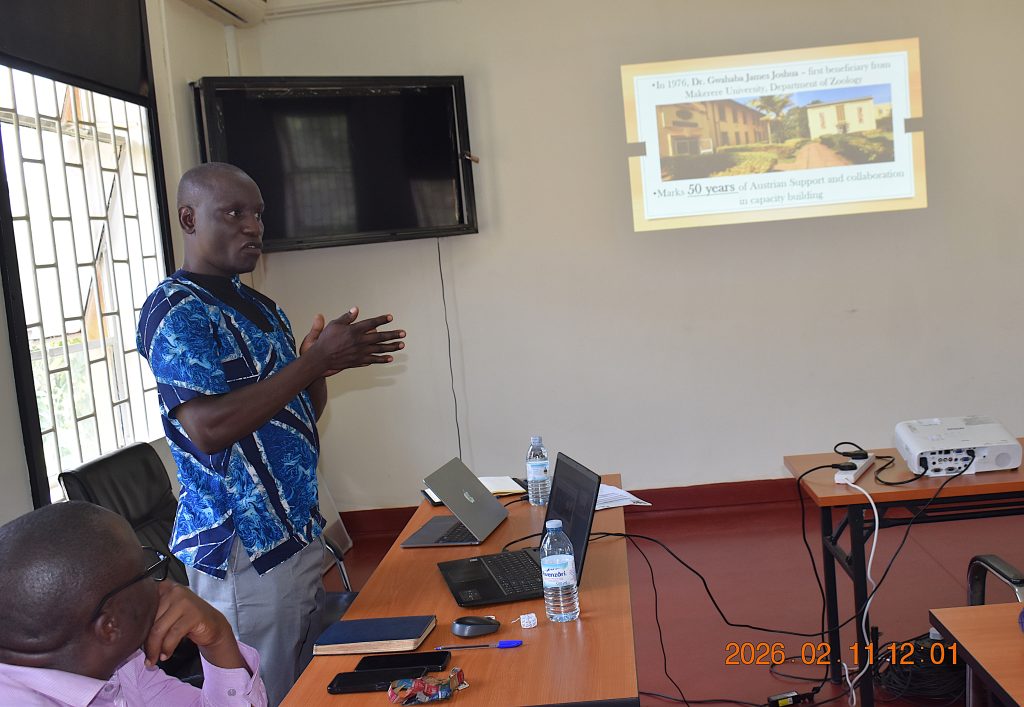
Collectively, these initiatives underscore a 50-year-old partnership that has built critical human resources at MSc and PhD levels in aquatic ecosystem management, conservation and utilization. The collaboration has also facilitated acquisition of essential research equipment, strengthened administrative capacity in project management, and nurtured a culture of knowledge sharing and innovation.
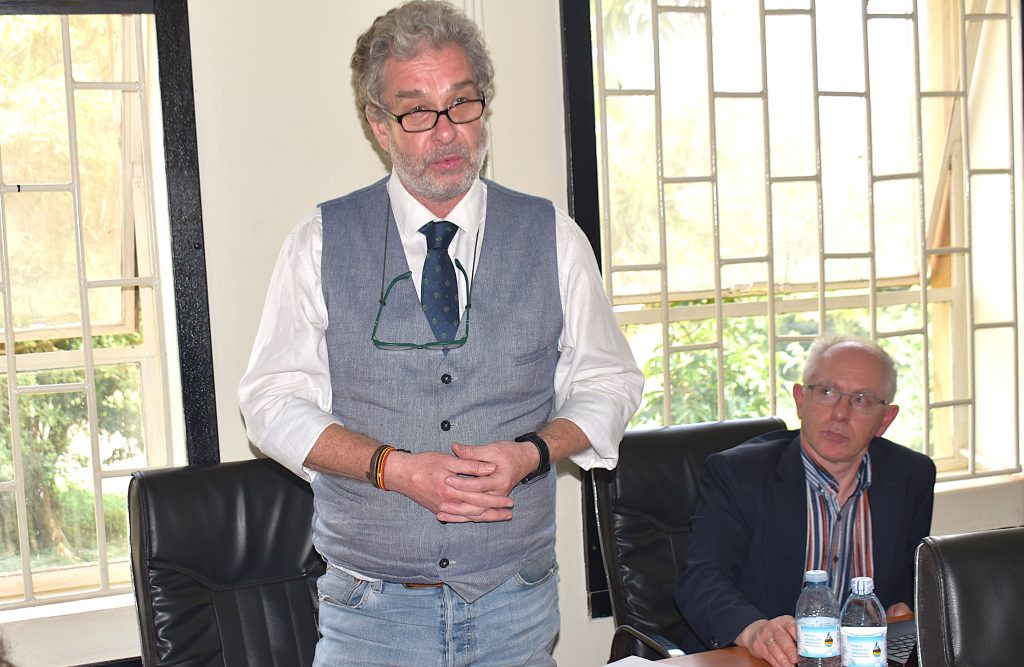
Meeting with the BOKU delegation
The BOKU delegation was led by the Rector, Prof. Eva Schulev-Steindl, a specialist in environmental law, and Vice Rector Assoc. Prof. Doris Damyanovic, an expert in landscape planning. They were accompanied by:
- Mag. Gerold Winkler, Coordinator of the Applied Limnology / Limnology and Wetland Master’s programme;
- Dr. Mathew Herrnegger, BOKU’s Africa Cooperation Country Coordinator and hydrology specialist; and
- Dr. Andreas Melcher, Africa-Uninet Coordinator from BOKU’s Institute for Development Research.
During the discussions with departmental staff, Dr. Akoll presented a detailed account of the partnership’s evolution and achievements, emphasizing its transformative impact on regional training and research capacity.
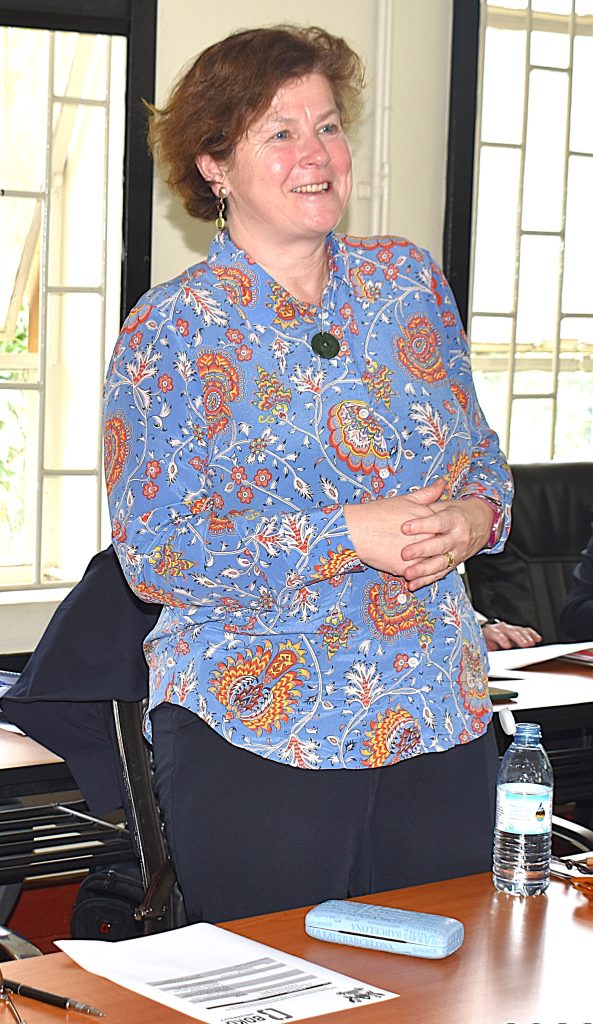
Charting the Next Chapter
As the partnership enters its sixth decade, both institutions are keen to expand into new frontiers. Key areas identified for future collaboration include:
- Enhanced staff and student exchanges;
- Joint research projects and co-publications;
- Introduction of short courses at the Makerere University Biological Field Station, Kibale beyond wildlife studies;
- Research on climate change and its effects on marine and freshwater resources;
- Advancement of basic biological research; and
- Strengthening fisheries research and innovation.
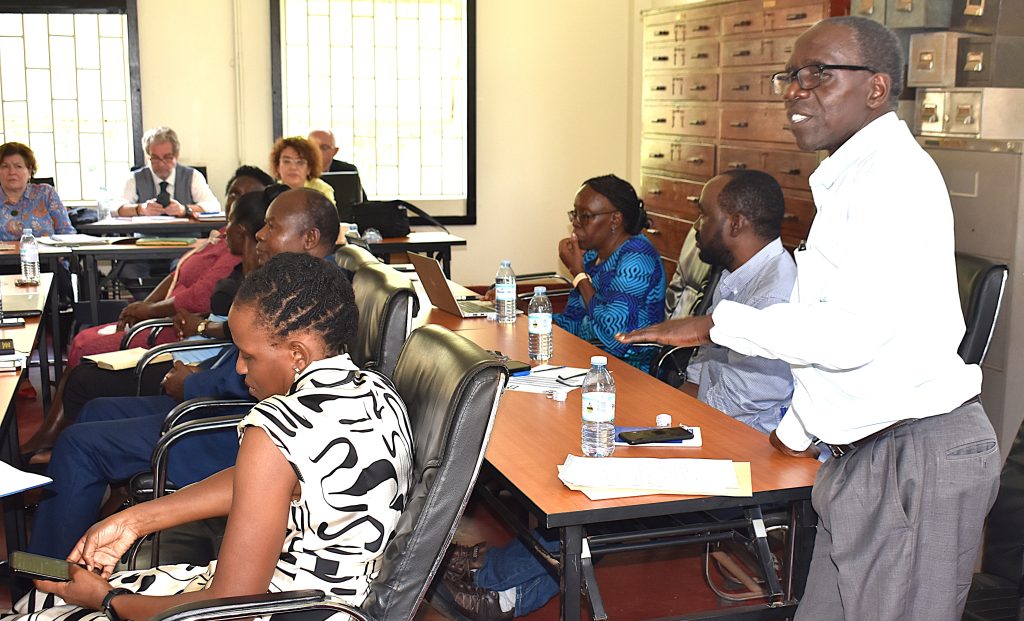
In his remarks, the Head of the Department of Zoology, Entomology and Fisheries Sciences, Dr. Godfrey Kawooya expressed gratitude for the enduring partnership, noting that it has significantly strengthened regional training capacity and supported the education of numerous Makerere staff and students. He added that the collaboration reinforces Makerere’s standing as one of the most collaborative universities globally and aligns closely with its research agenda.
Rector Schulev-Steindl reaffirmed BOKU’s commitment to advancing the longstanding relationship, describing it as a model of North-South academic cooperation built on mutual respect, shared knowledge and tangible impact.
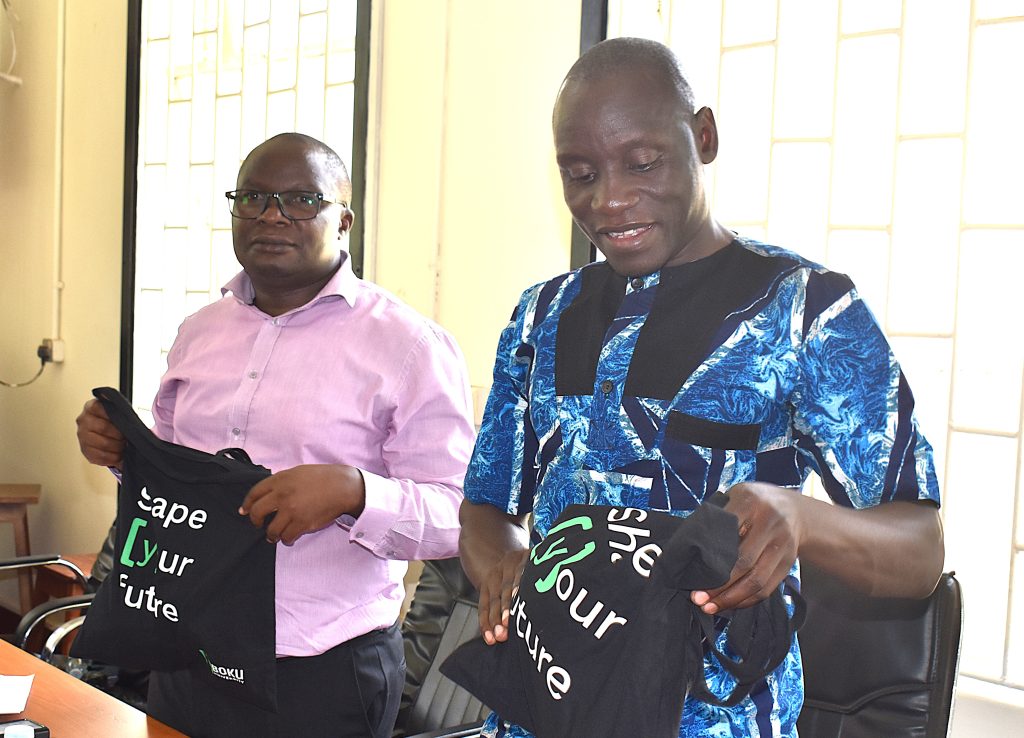
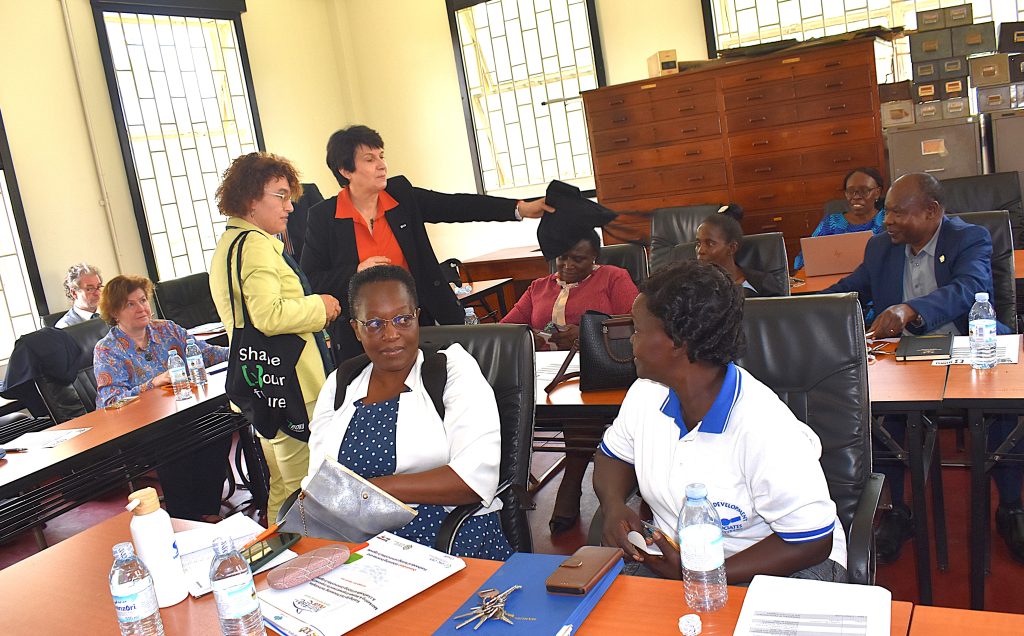
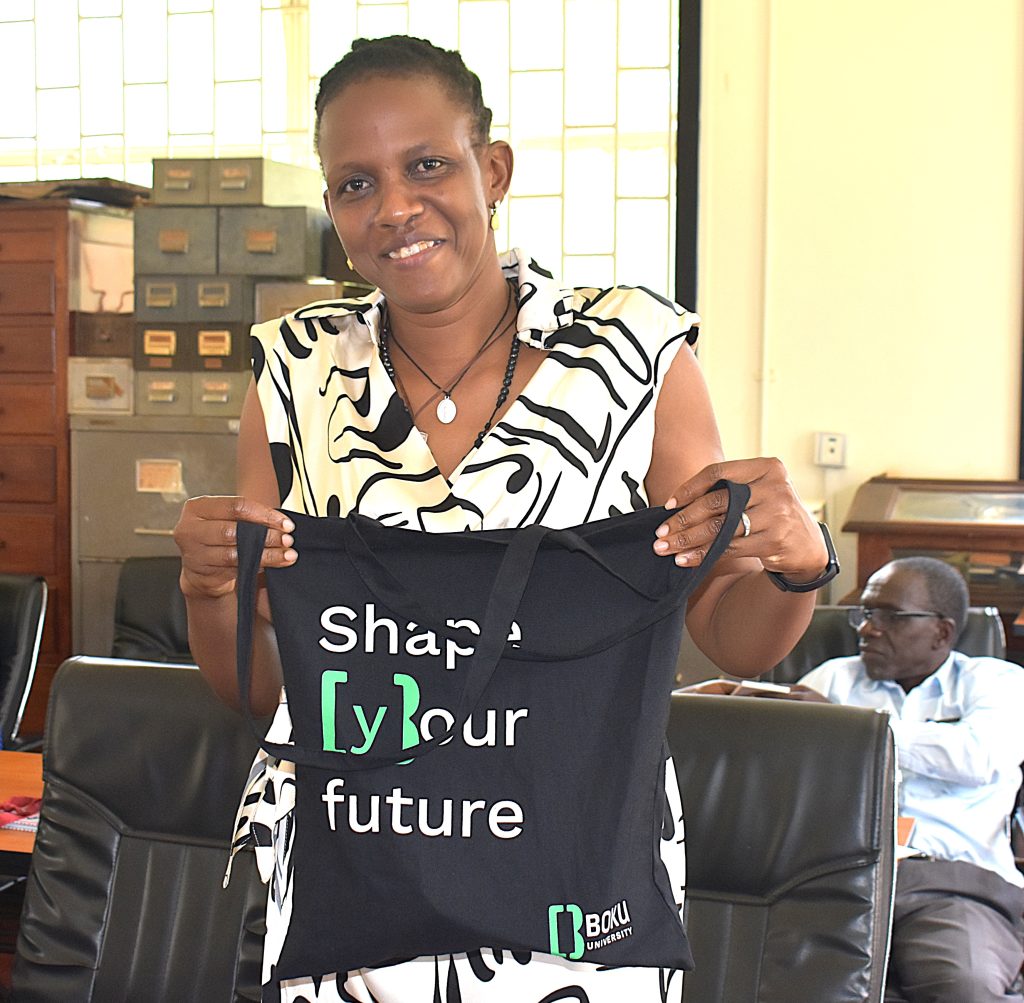
Event pictorial: https://drive.google.com/drive/folders/1HkCCZf_TCPV0V7_ZR2PSVEw1zrEGhZeJ?usp=sharing
Natural Sciences
Simon Mungudit: Mak’s Best Performing Male Science Student & Rising Star in Petroleum Geoscience
Published
3 weeks agoon
February 3, 2026
At just 24 years old, Simon Mungudit from the College of Natural Sciences (CoNAS) has etched his name in the academic history of Makerere University, having emerged as the overall best male student in the Sciences, an achievement earned through perseverance, discipline, and an unrelenting pursuit of excellence.
Mungudit is set to graduate during 76th graduation ceremony scheduled for 24th to 27th February 2026, having attained a CGPA of 4.76 in the Bachelor of Science in Petroleum Geoscience and Production. His academic interests-Reservoir Engineering, Petrophysics, and Drilling-reflect a deep understanding of the subsurface sciences that power modern energy systems.
Early Life and Journey to Academic Excellence
Born to Mr. Owor Thomas, a Game Ranger with the Uganda Wildlife Authority at Murchison Falls National Park, and Ms. Lilly Obewun Grace of Akuru Bridge Village, Nyaravur Sub-County in Nebbi District, Mungudit’s journey to academic excellence began far from the lecture halls of Makerere. At Karuma Primary School, Mungudit scored 12 aggregates in the Primary Leaving Examinations (PLE), setting the pace for his future success. He proceeded to St. Daniel Comboni College, Nebbi, where he attained 14 aggregates in 8 subjects at O’ Level. He then joined Namilyango College, one of the best secondary schools in Uganda, where he studied Physics, Chemistry, and Mathematics (PCM) and scored 19 points, results that secured him government sponsorship to pursue a Bachelor of Science in Petroleum Geoscience and Production at Makerere University.
Gratitude to his mentors and sponsors
Behind these milestones lies a story of humility, gratitude and opportunity. Mungudit credits his parents for supporting his primary and O’ Level education and expresses gratitude to TotalEnergies, which provided a full bursary for his A’ Level studies, covering tuition, upkeep, and medical care. He also acknowledges the Government of Uganda for sponsoring his university education, a factor he says motivated him to excel.
At Makerere, Mungudit thrived in an environment that blended rigorous academics with mentorship. He pays tribute to his lecturers, particularly Dr. Arthur Batte, Head, Department of Geology and Petroleum Studies, for their unwavering commitment to nurturing students and pushing them to excel.
“I always aimed to excel,” Mungudit says. “Together with a few colleagues, we formed a group and held discussions on a daily. This, coupled with a conducive study environment, prayer, and discipline, enabled us to attain excellent grades.”
Dr Arthur Batte describes Mungidit as a humble yet very intelligent student.
Achievements and Professional Experience
Beyond academics, Mungudit consistently demonstrated expertise in petroleum engineering. In 2024, he led a team that won the Reservoir Modelling Challenge, organized by the American Association of Petroleum Geologists (AAPG) Makerere University Chapter, earning prize money and a sponsored field trip to the Tilenga Project courtesy of COSL. He was First Runner-Up in the Petro Bowl competitions of 2023 and 2025, a highly competitive petroleum knowledge quiz organized by the Society of Petroleum Engineers (SPE) Uganda Section. He served as a Student Officer for the SPE Makerere University Chapter in 2023, and in 2024, he chaired the Organizing Committee of the SPE Annual Students’ Technical Conference and Exhibition, helping bridge the gap between academia and industry.
His learning extended beyond the classroom. During his internship, he worked with TotalEnergies, where he applied petrophysics skills to analyze gas-while-drilling data for formation evaluation, hands-on exposure that sharpened his professional competence. At Makerere University, he mastered PetroMod 2018, a critical software tool in oil and gas exploration. After completing his studies in June 2025, Mungudit trained with the Uganda National Oil Company (UNOC), participating in the 2D seismic acquisition in the Kasurubani Block in Buliisa and Hoima districts.
Mungudit currently works as the Special Projects Coordinator for the Society of Petroleum Engineers (SPE) Uganda Section Student Liaison Committee.
Future Plans
Mungudit hopes to work in the oil and gas industry in the upstream sector as a geoscientist. He also plans to pursue further studies in petroleum engineering.
From a village in Nebbi to the forefront of petroleum geoscience, Mungudit’s story is one of an opportunity seized and potential realized. It is a testament to what is possible when talent meets support, and when determination is guided by faith, mentorship, and service. As Uganda’s oil and gas sector continues to evolve, Mungudit stands as a symbol of the skilled, principled professionals poised to shape its future.
The CoNAS fraternity congratulates Mungudit on this noble achievement.
Natural Sciences
Enhancing Data Quality: NutriFishPlus Research Assistants Retooled Ahead of Baseline Survey
Published
1 month agoon
January 20, 2026
The NutriFishPlus Project team successfully conducted a one-day capacity-building training for its research assistants, centered on the Monitoring, Evaluation, and Learning (MEL) framework and the household survey tool. Held on 13th January 2026 at Ridar Hotel Seeta in Mukono District, the training aimed to improve data collection, analysis, and learning processes to support evidence-based project implementation and impact assessment.
It was officially opened by Dr. Jackson Efitre, the Principal Investigator, who introduced the research assistants to the overall goal of the NutriFishPlus Project and the guiding principles of the International Development Research Centre (IDRC) Scaling Approach. In his remarks, Dr Efitre emphasized the importance of high-quality data in tracking progress, informing adaptive management, and scaling impact.
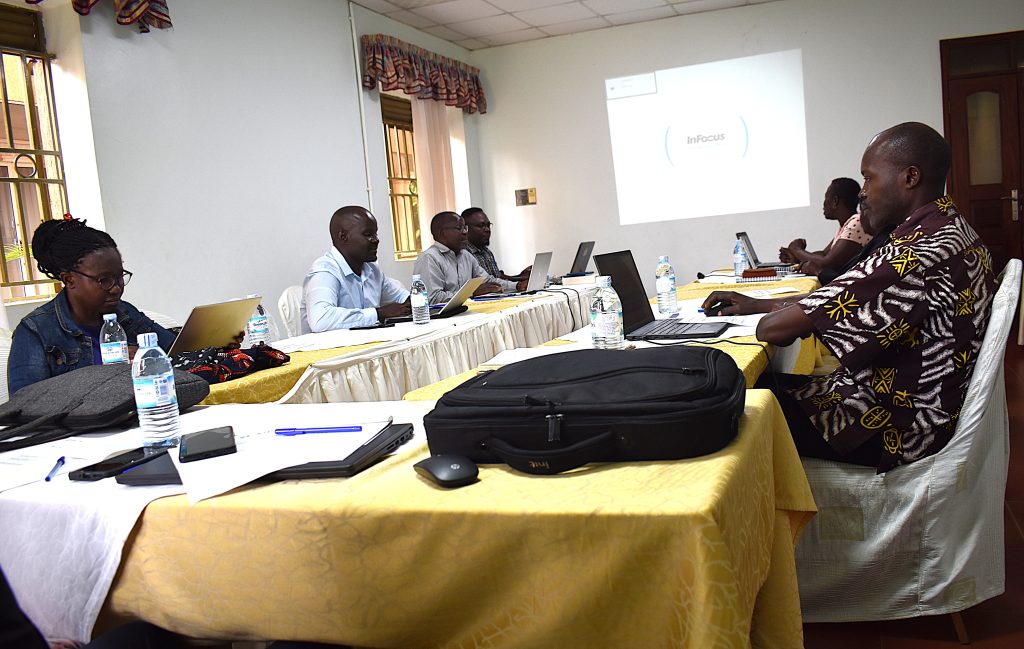
NutriFishPlus builds on the significant achievements of the ground-breaking NutriFish Project (2019–2023), which was funded by IDRC and the Australian Centre for International Agricultural Research (ACIAR) through the Cultivate Africa’s Future Fund Phase II (CultiAF2). Officially launched on 28th October 2025, the two-year and eight-month project seeks to scale proven innovations while deepening nutrition, livelihood, and gender outcomes within small pelagic fisheries.
The project aims to:
- Scale up the adoption of improved and sustainable fish processing technologies, including solar tent driers and raised racks, to reach new fishing communities across Uganda.
- Enhance market access and strengthen supply chain linkages for high-quality fish and fish-based products.
- Empower women and other vulnerable groups while strengthening community resilience through diversified income-generating activities.

Expected Outcomes:
NutriFishPlus is expected to deliver multiple socioeconomic and environmental benefits, including:
- Improved incomes and livelihoods for marginalized fishing communities, particularly women and youth.
- Enhanced health and nutrition outcomes through the development of diversified, market-embedded fish products.
- Establishment of sustainable and replicable fish processing and marketing models across Uganda and the wider East African region.
- Increased participation of women and youth in decision-making and benefit-sharing within the Small Pelagic Fishes (SPFs) value chain.
- Improved socioeconomic conditions and ecosystem health through participatory and scalable approaches.
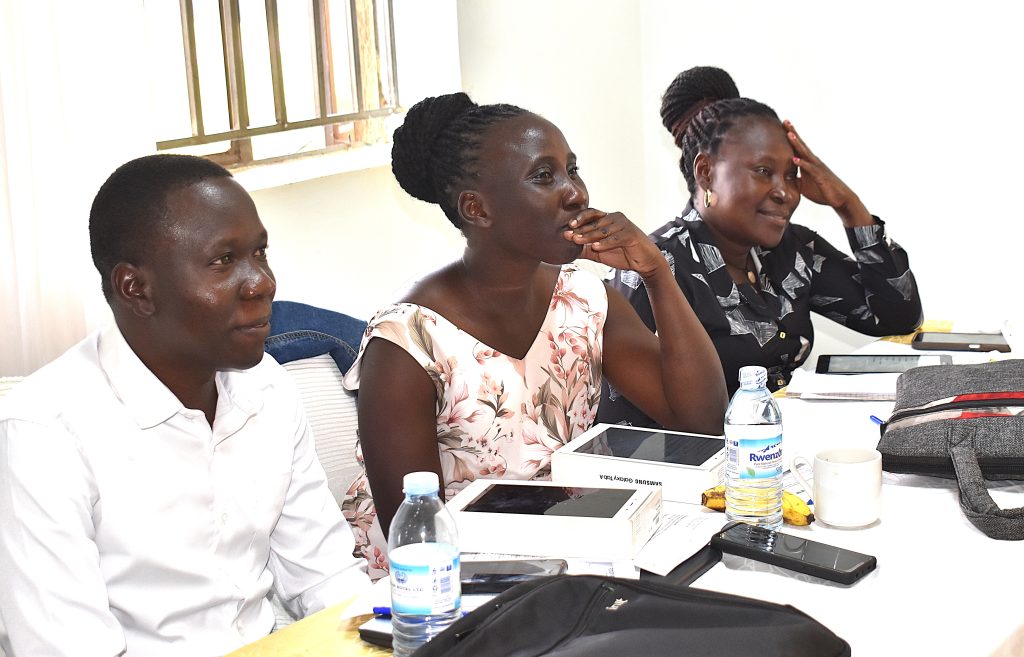
Project Implementation and Partnerships
The project is implemented by the Department of Zoology, Entomology, and Fisheries Sciences at Makerere University, in partnership with Nutreal Ltd and Kati Farms Ltd under a public-private partnership. Project activities will be carried out at five landing sites across Lakes Victoria, Kyoga, and Albert.

The project team comprises:
- Dr. Jackson Efitre (Principal Investigator)
- Dr. Dorothy Nakimbugwe (Co-PI from Nutreal Ltd)
- Ms. Lovin Kobusingye (Co-PI from Kati Farms Ltd)
- Dr. Robinson Odong (Project Officer, Department of Zoology, Entomology and Fisheries Sciences, Makerere University)
- Ms. Juliet Ogubi Nafula (M&E Expert)
- Ms. Nelly Badaru (Gender Specialist)
- Mr. Eugene Swinnerstone Miheso (IT Expert)
- Mr. Maurice Ssebisubi (Kati Farms Ltd)
- Ms. Hasifa Kabejja (Communication Officer)
- Ms. Eve Akongo Ampa (Project Administrator)
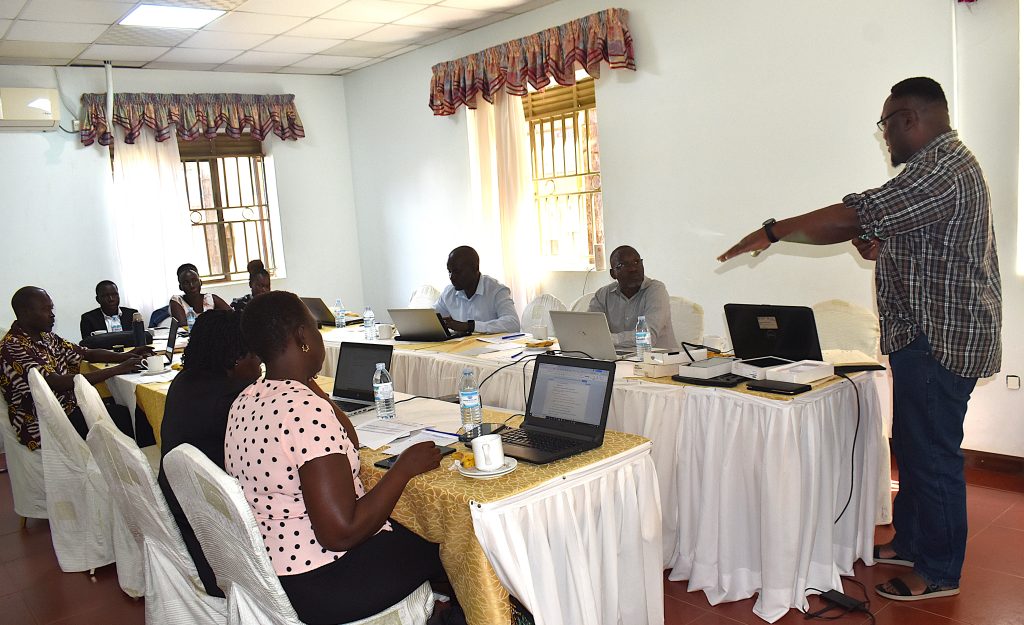
Strengthening MEL and Data Quality
During the training workshop, Ms. Juliet Ogubi Nafula guided the team through the NutriFishPlus MEL framework, highlighting its objectives, indicators, results chain, and reporting requirements. Particular emphasis was placed on the role of high-quality data in facilitating project learning, adaptive management, and accountability to donors and beneficiaries.
A key highlight of the training was a hands-on orientation to the household survey tool, led by Mr. Eugene Swinnerstone Miheso. Participants were taken through the structure of the questionnaire, which covers household demographics, nutrition and dietary diversity, fish consumption, livelihoods, value addition, gender dynamics, and food security. Practical sessions enabled the research assistants to practice administering the tool, apply effective probing techniques, and address common field-level challenges.
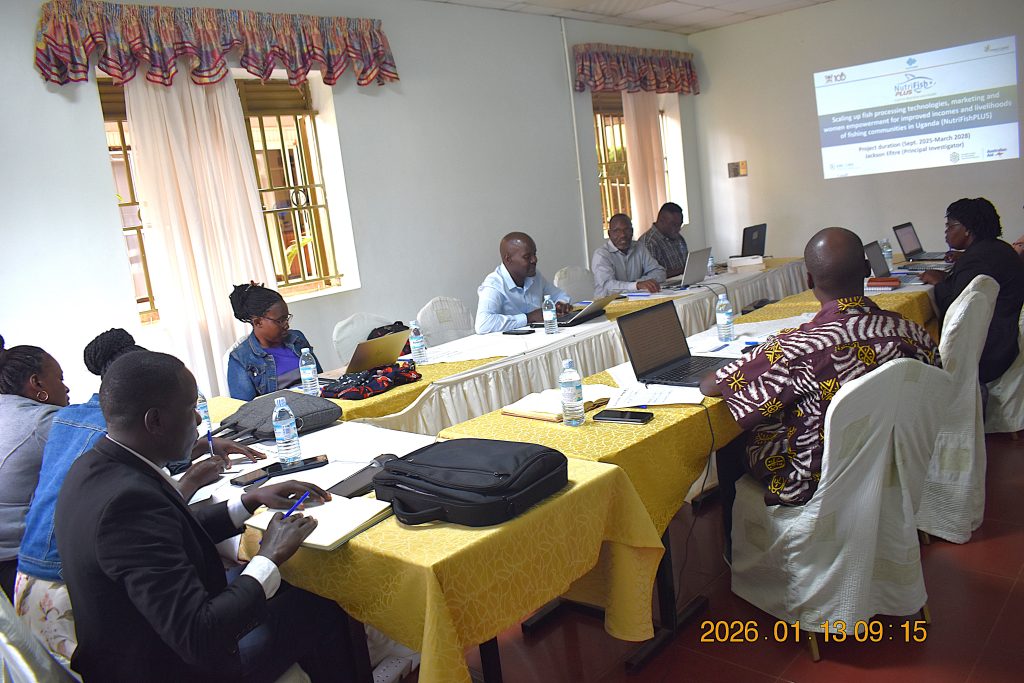
The training underscored critical ethical considerations in household data collection, including informed consent, confidentiality, and respectful engagement with respondents. Data quality assurance measures such as accurate data recording, use of digital data collection platforms, and daily review protocols were discussed to ensure consistency and reliability.
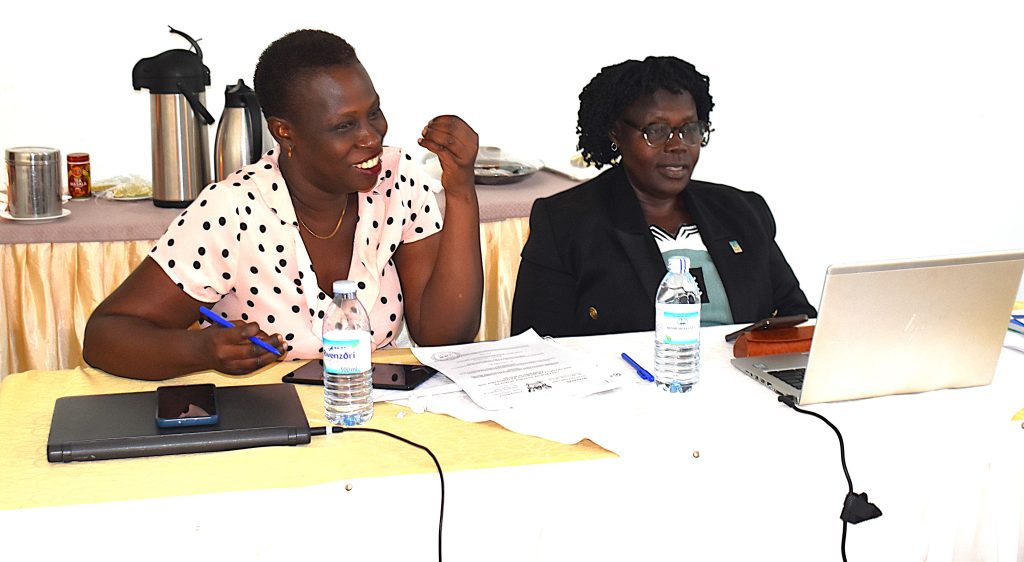
In his closing remarks, Dr. Efitre emphasized that well-trained research assistants are central to generating credible evidence that reflects the lived realities of beneficiary households. “This training is a vital investment in strengthening our MEL system and ensuring that the evidence we generate informs learning, accountability, and improved project outcomes,” he noted.

The participants expressed gratitude for the interactive and practical nature of the training, noting that the sessions significantly enhanced their confidence and readiness for fieldwork. The training concluded with a question-and-answer session and a brief assessment to confirm participants’ understanding of the MEL framework and household survey tool.

Pre-testing of the household survey tool
Following the training, the project team conducted a pre-test of the household survey tool at Kasenyi Landing Site in Entebbe on 19th January 2026, ahead of the baseline survey. The baseline data collection will be carried out across five landing sites: Katosi (Mukono District), Kikondo (Buikwe District), Bangaladesh and Kayago (Amolatar District), and Dei (Pakwach District), spanning Lakes Victoria, Kyoga, and Albert.
Details on the project at: https://news.mak.ac.ug/2025/10/mak-conas-launches-nutrifishplus-project/
Trending
-

 General2 weeks ago
General2 weeks agoAptitude Exam (Paper 1) Results for the Mature Age Entry Scheme 2026/2027
-

 Health2 weeks ago
Health2 weeks agoHow Jimmy Osuret Turned Childhood Trauma into Evidence for Safer School Crossings
-

 Health3 days ago
Health3 days agoUganda has until 2030 to end Open Defecation as Ntaro’s PhD Examines Kabale’s Progress
-

 General2 weeks ago
General2 weeks agoFor Youth by Youth – Call for Second Cohort Applications
-

 General3 days ago
General3 days agoMastercard Foundation Scholars embrace and honour their rich cultural diversity
